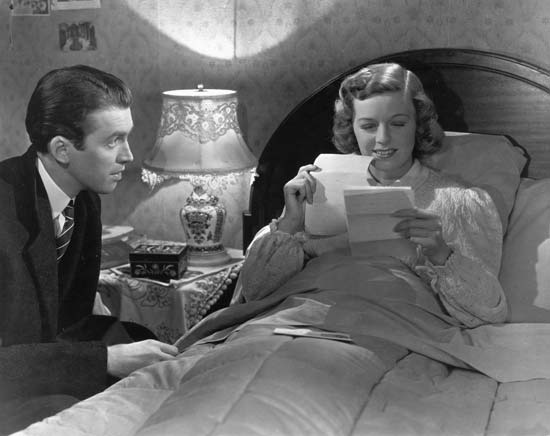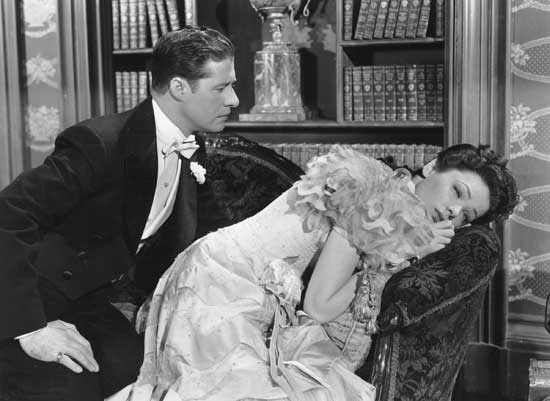Lubitsch, Ernst
American director
born Jan. 28, 1892, Berlin, Ger.
died Nov. 30, 1947, Hollywood, Calif., U.S.
German-American motion-picture director who was best known for sophisticated comedies of manners. (manners, comedy of)
He studied acting and in 1911 joined the company of Max Reinhardt (Reinhardt, Max), the famous German stage director. He played minor stage roles until shortly before World War I, when he became an actor in and a director of one-reel film comedies.
His elaborate costume features in the early post-World War I period were the first German productions to be shown abroad. Some of the more important of these films, especially admired for their innovative camera work, were Madame Du Barry (1919; Passion), Anna Boleyn (1920; Deception), Das Weib des Pharao (1921; The Loves of Pharaoh), and Sumurun (1920; One Arabian Night).
Lubitsch's reputation as a director was firmly established by comedies such as Die Puppe (1919; The Doll) and Die Austernprinzessin (1919; The Oyster Princess). In 1923 he was commissioned to direct the actress Mary Pickford (Pickford, Mary) in Rosita (1923), a grand-scale Hollywood costume drama. He was the first important German director to emigrate to the United States, and his success attracted many others. During the next five years he developed a readily identifiable style that became known as the “Lubitsch touch.” It was a combination of understatement and graceful wit that resulted in a sophisticated comedy with implied sexual overtones. Among early films in this style were his silent comedies Forbidden Paradise (1924), The Marriage Circle (1924)—the film that revolutionized set design by making it an integral part of the action—Lady Windermere's Fan (1925), Kiss Me Again (1925), and So This Is Paris (1926). Lubitsch produced as well as directed the last three of these films, and he continued to work as a producer throughout his career.

 In The Love Parade (1929) and Monte Carlo (1930), his first talking pictures, Lubitsch freed the camera from its soundproof box by filming sequences without dialogue and dubbing in the sound later. In the Maurice Chevalier and Jeanette MacDonald musicals (musical film) of the 1930s, Lubitsch was the first director to introduce songs as a natural part of the plot. Although Broken Lullaby (1932), Lubitsch's one dramatic film of this period, was successful for its brilliant camera work, his most consistently successful films were such comedies as Trouble in Paradise (1932), The Merry Widow (1934), Ninotchka (1939), The Shop Around the Corner (1940), To Be or Not to Be (1942), Heaven Can Wait (1943), Cluny Brown (1946), and That Lady in Ermine (1948), completed after his death.
In The Love Parade (1929) and Monte Carlo (1930), his first talking pictures, Lubitsch freed the camera from its soundproof box by filming sequences without dialogue and dubbing in the sound later. In the Maurice Chevalier and Jeanette MacDonald musicals (musical film) of the 1930s, Lubitsch was the first director to introduce songs as a natural part of the plot. Although Broken Lullaby (1932), Lubitsch's one dramatic film of this period, was successful for its brilliant camera work, his most consistently successful films were such comedies as Trouble in Paradise (1932), The Merry Widow (1934), Ninotchka (1939), The Shop Around the Corner (1940), To Be or Not to Be (1942), Heaven Can Wait (1943), Cluny Brown (1946), and That Lady in Ermine (1948), completed after his death.- feather
- featherbedding
- feather-duster worm
- Feathered Serpent
- feather moss
- feather star
- feathertail
- Feather, Victor, Baron Feather of the City of Bradford
- feather-winged beetle
- featherwork
- February
- February Revolution
- Febvre, Lucien Paul Victor
- feces
- Fechner, Gustav Theodor
- Feckenham, John de
- fedayee
- Fedchenko Glacier
- Fed Cup
- Fed Cup Table
- Fedeli, Compagnia dei
- Federal Bureau of Investigation
- Federal Constitutional Court
- Federal Deposit Insurance Corporation
- Federal District